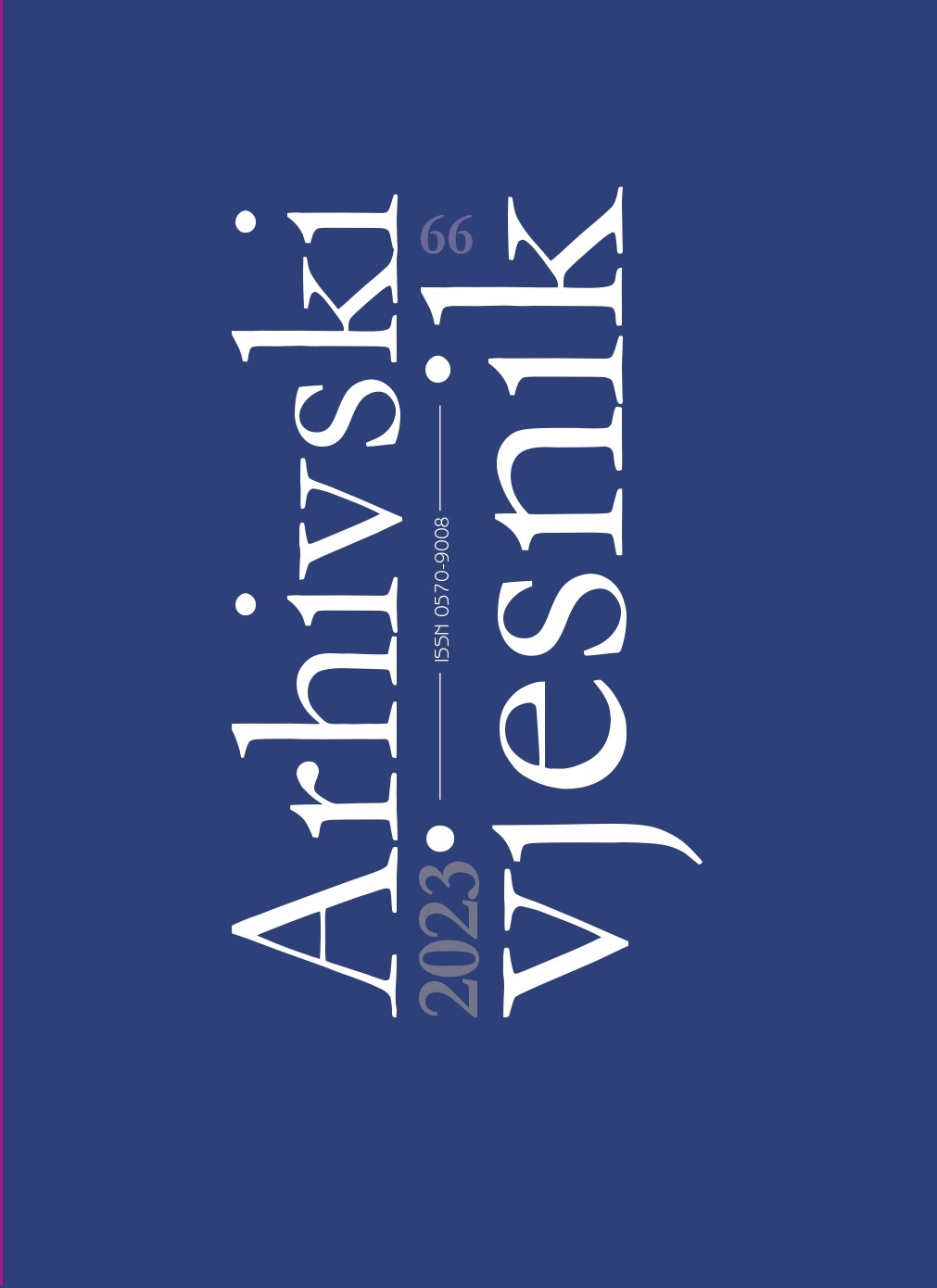On Countersign from the Aspect of the Modern Diplomatics
DOI:
https://doi.org/10.36506/av.66.1Keywords:
countersign, auxilliary sciences of history, diplomatics, modern diplomatics, archival science, appointments, diploma, letters patent, writ, rescript, handwritten, handwritten letter, Handschreiben, imperial resolution, decreeAbstract
Since Croatian constitutional reforms of 2000, official documents for appointment of new Croatian ambassadors have borne the signature of the President of the Republic of Croatia. However, they have not borne the countersign of the Prime Minister that is usually submitted to the Head of State as a separate document earlier on in the appointment procedure. Inspired by this uncommon practice, this paper examines the history of countersign by means of application of H. O. Meisner’s “Aktenkunde” (the modern diplomatics of files). It studies its antique and medieval roots with particular emphasis on its development from the 16th century onwards. Since Meisner’s modern diplomatics as an auxiliary science of history has not been particularly known in Croatia, the first part of this paper presents his theory as well as the parallel development of the French “diplomatique de l’époque moderne”. The diplomatic analysis specially focuses on documents for appointment of high-ranking civil and military officials issued by Austrian, Croatian and Hungarian Habsburg chancelleries in the period between the 16th century and 1918. The Habsburgs had at their disposal five types of documents for appointment of officials that, apart from decrees, were validated by sovereign’s signature placed below the text to the left, and by a countersign of competent authority’s head, originally placed directly below sovereign’s signature and later on underneath the signature more to the right. This paper also underlines the importance of auxiliary historical sciences, here the diplomatic, since public documents like other state symbols (the national flag, coat of arms or decorations) form part of state identity and should follow centuries-old diplomatic traditions that were almost forgotten during the Communist era in Croatia.


